Related Research Articles
The Association for Computing Machinery (ACM) is a US-based international learned society for computing. It was founded in 1947 and is the world's largest scientific and educational computing society. The ACM is a non-profit professional membership group, claiming nearly 110,000 student and professional members as of 2022. Its headquarters are in New York City.

Computer science is the study of computation, information, and automation. Computer science spans theoretical disciplines to applied disciplines. Though more often considered an academic discipline, computer science is closely related to computer programming.

David Harold Bailey is a mathematician and computer scientist. He received his B.S. in mathematics from Brigham Young University in 1972 and his Ph.D. in mathematics from Stanford University in 1976. He worked for 14 years as a computer scientist at NASA Ames Research Center, and then from 1998 to 2013 as a Senior Scientist at the Lawrence Berkeley National Laboratory. He is now retired from the Berkeley Lab.

Leonard Adleman is an American computer scientist. He is one of the creators of the RSA encryption algorithm, for which he received the 2002 Turing Award. He is also known for the creation of the field of DNA computing.
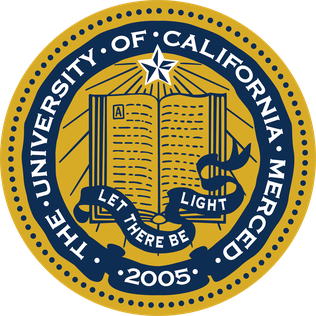
The University of California, Merced is a public land-grant research university and Hispanic-serving institution located in Merced, California, and is the tenth and newest of the University of California (UC) campuses. Established in 2005, UC Merced was founded to "address chronically low levels of educational attainment in the region." UC Merced enrolls 8,321 undergraduates and 772 graduates with 63.8% of students receiving Pell Grants, more than 99% of UC Merced students coming from California, and the largest percentage of low-income students from underrepresented ethnic groups in the UC system.
Computer Science and Engineering (CSE) is an academic program at many universities which comprises scientific and engineering aspects of computing. CSE is also a term often used in Europe to translate the name of engineering informatics academic programs. It is offered in both undergraduate as well postgraduate with specializations.

Jack Joseph Dongarra is an American computer scientist and mathematician. He is the American University Distinguished Professor of Computer Science in the Electrical Engineering and Computer Science Department at the University of Tennessee. He holds the position of a Distinguished Research Staff member in the Computer Science and Mathematics Division at Oak Ridge National Laboratory, Turing Fellowship in the School of Mathematics at the University of Manchester, and is an adjunct professor and teacher in the Computer Science Department at Rice University. He served as a faculty fellow at the Texas A&M University Institute for Advanced Study (2014–2018). Dongarra is the founding director of the Innovative Computing Laboratory at the University of Tennessee. He was the recipient of the Turing Award in 2021.
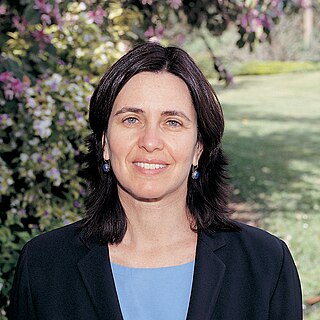
Shafrira Goldwasser is an Israeli-American computer scientist and winner of the Turing Award in 2012. She is the RSA Professor of Electrical Engineering and Computer Science at Massachusetts Institute of Technology; a professor of mathematical sciences at the Weizmann Institute of Science, Israel; the director of the Simons Institute for the Theory of Computing at the University of California, Berkeley; and co-founder and chief scientist of Duality Technologies.
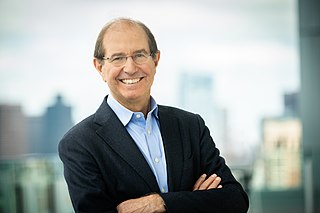
Silvio Micali is an Italian computer scientist, professor at the Massachusetts Institute of Technology and the founder of Algorand, a proof-of-stake blockchain cryptocurrency protocol. Micali's research at the MIT Computer Science and Artificial Intelligence Laboratory centers on cryptography and information security.

Richard Alfred Tapia is an American mathematician and University Professor at Rice University in Houston, Texas, the university's highest academic title. In 2011, President Obama awarded Tapia the National Medal of Science. He is currently the Maxfield and Oshman Professor of Engineering; Associate Director of Graduate Studies, Office of Research and Graduate Studies; and Director of the Center for Excellence and Equity in Education at Rice University.
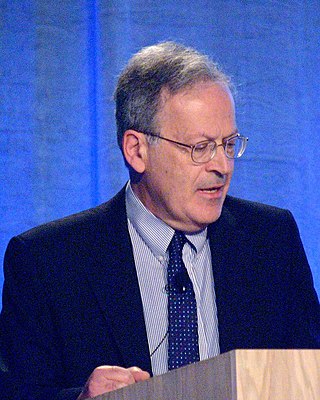
Leslie Gabriel Valiant is a British American computer scientist and computational theorist. He was born to a chemical engineer father and a translator mother. He is currently the T. Jefferson Coolidge Professor of Computer Science and Applied Mathematics at Harvard University. Valiant was awarded the Turing Award in 2010, having been described by the A.C.M. as a heroic figure in theoretical computer science and a role model for his courage and creativity in addressing some of the deepest unsolved problems in science; in particular for his "striking combination of depth and breadth".
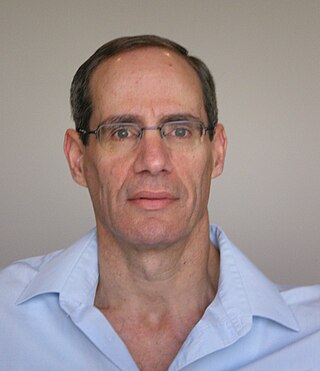
Noga Alon is an Israeli mathematician and a professor of mathematics at Princeton University noted for his contributions to combinatorics and theoretical computer science, having authored hundreds of papers.
Joseph Frederick Traub was an American computer scientist. He was the Edwin Howard Armstrong Professor of Computer Science at Columbia University and External Professor at the Santa Fe Institute. He held positions at Bell Laboratories, University of Washington, Carnegie Mellon, and Columbia, as well as sabbatical positions at Stanford, Berkeley, Princeton, California Institute of Technology, and Technical University, Munich.

Moshe Ya'akov Vardi is an Israeli mathematician and computer scientist. He is the Karen Ostrum George Distinguished Service Professor in Computational Engineering at Rice University, United States. and a faculty advisor for the Ken Kennedy Institute. His interests focus on applications of logic to computer science, including database theory, finite model theory, knowledge of multi-agent systems, computer-aided verification and reasoning, and teaching logic across the curriculum. He is an expert in model checking, constraint satisfaction and database theory, common knowledge (logic), and theoretical computer science.

Scott Joel Aaronson is an American theoretical computer scientist and David J. Bruton Jr. Centennial Professor of Computer Science at the University of Texas at Austin. His primary areas of research are quantum computing and computational complexity theory.

Constantinos Daskalakis is a Greek theoretical computer scientist. He is a professor at MIT's Electrical Engineering and Computer Science department and a member of the MIT Computer Science and Artificial Intelligence Laboratory. He was awarded the Rolf Nevanlinna Prize and the Grace Murray Hopper Award in 2018.
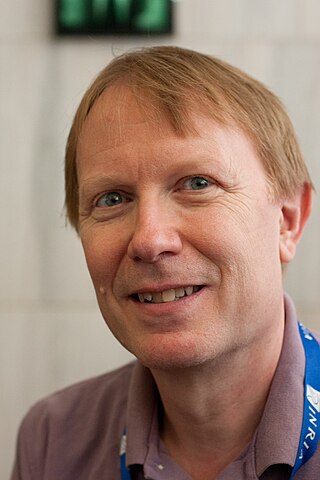
Joseph S. B. Mitchell is an American computer scientist and mathematician. He is Distinguished Professor and Department Chair of Applied Mathematics and Statistics and Research Professor of Computer Science at Stony Brook University.

Alan Stuart Edelman is an American mathematician and computer scientist. He is a professor of applied mathematics at the Massachusetts Institute of Technology (MIT) and a Principal Investigator at the MIT Computer Science and Artificial Intelligence Laboratory (CSAIL) where he leads a group in applied computing. In 2004, he founded a business called Interactive Supercomputing which was later acquired by Microsoft. Edelman is a fellow of American Mathematical Society (AMS), Society for Industrial and Applied Mathematics (SIAM), Institute of Electrical and Electronics Engineers (IEEE), and Association for Computing Machinery (ACM), for his contributions in numerical linear algebra, computational science, parallel computing, and random matrix theory. He is one of the cocreators of the technical programming language Julia.
Nancy Marie Amato is an American computer scientist noted for her research on the algorithmic foundations of motion planning, computational biology, computational geometry and parallel computing. Amato is the Abel Bliss Professor of Engineering and Head of the Department of Computer Science at the University of Illinois at Urbana-Champaign. Amato is noted for her leadership in broadening participation in computing, and is currently a member of the steering committee of CRA-WP, of which she has been a member of the board since 2000.
The Richard Tapia Celebration of Diversity in Computing Conference is a conference designed to promote diversity, connect undergraduate and graduate students, faculty, researchers, and professionals in computing from all backgrounds and ethnicities. The conferences are sponsored by the Association for Computing Machinery (ACM), and presented by the Center for Minorities and People with Disabilities in Information Technology (CMD-IT). The conferences are named after Professor Richard Tapia. Tapia is an internationally acclaimed scientist, a member of the National Academy of Engineering, the first recipient of the Computing Research Association's A. Nico Habermann Award for outstanding contributions to aiding members of underrepresented groups within the computing community, a member of the National Science Board, and recipient of the Presidential Award for Excellence in Science, Mathematics, and Engineering Mentoring from President Bill Clinton.
References
- 1 2 3 4 "Juan Meza Named One of Hispanic Business Magazine's "100 Influentials"". Berkeley Lab Computing Sciences. Retrieved 2023-04-29.
- 1 2 3 Diaz-Lopez, Alexander; Harris, Pamela E.; Prieto Langarica, Alicia; Sosa, Gabriel. "Lathisms:Latin@s and Hispanics in Mathematical Sciences" (PDF). Journal of the American Mathematical Society. 63 (9): 1024. doi:10.1090/noti1425.
- ↑ "Juan C Meza | University of California, Merced - Academia.edu". ucmerced.academia.edu. Retrieved 2023-05-22.
- 1 2 "School of Natural Sciences Dean Set to Begin New Leadership Position | Panorama". panorama.ucmerced.edu. Retrieved 2023-05-23.
- ↑ Buckmire, Ron (February 2019). "Recognizing Black and Latinx Mathematical Excellence: The Blackwell-Tapia Prize" (PDF). Journal of the American Mathematical Society. 66 (2): 218–220. doi:10.1090/noti1798.
- ↑ Small, Ashley (2022-05-12). "UC Merced Applied Mathematics Professor Dr. Juan C. Meza Receives The Richard Tapia Achievement Award". CMD-IT. Retrieved 2023-05-22.